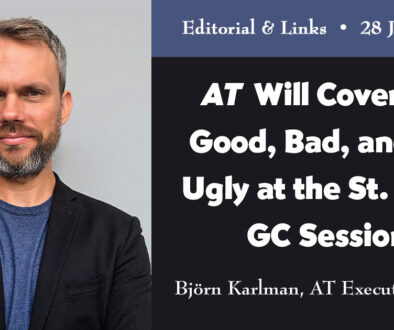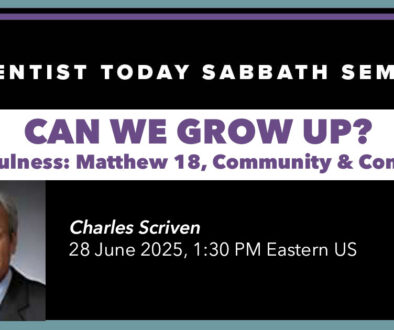ATSS: Laurence Turner, “Reading the Bible’s Stories Imaginatively”
17 January 2024 |
Of the many types of literature found in the Bible, narrative or story predominates, making up about forty percent of the entire Bible. The reason for this is that the Bible is the product of the Israelite or Jewish mind. And the primary mode of discourse used in that culture when thinking about matters of first importance was narrative. Thus, Jesus taught in parables not because he was the son of God, but because he was Jewish. In modern western culture, with its heritage of classical thought from ancient Greece and Rome, it is customary to deal with serious matters like the meaning of life using rational language based on classical logic. But in approaching those same matters of human existence the ancient Israelite/Jewish approach was to say, “Let me tell you a story …”. The rational approach might seem more “efficient” but the narrative approach is certainly more memorable and “human”.
Biblical narratives do not major on establishing propositional theology through logical deduction. But they do convey profound thought and radical ethics in ways we find difficult to forget. Hear the parable of the prodigal son just once, and you remember it for the rest of your life. This is because such narratives invite an interplay between the understated details present in the narrative and the response of the reader. The aim is to encourage imaginative participation by the reader.
Unfortunately, many have lost the ability to read biblical narratives imaginatively because we no longer know the conventions used by biblical narratives. Too often we read biblical narratives expecting them to conform to modern western conventions of what a story is. In our Adventist Today Sabbath Seminar we will revisit biblical stories to discover how deep and rich they can be for twenty-first century readers once we are attuned to the conventions they do use. Once we rediscover how biblical narratives invite us to participate in their stories rather than simply telling us what to believe, a whole new world of dialogue with God opens up.
Teacher:
Laurence Turner is Principal Lecturer Emeritus in Old Testament at Newbold College of Higher Education.
Moderator:
How to join:
One-click link: https://us06web.zoom.us/j/84632465476
Passcode: JONAH
ATSS starting time depends on where you are. If you’re on the west coast of the United States, it’ll be 10:30 AM. On the east coast, 1:30 PM. Times in Europe, Africa, and elsewhere will vary with local time changes. Please double-check the correct time where you live.
The class is intended to last about 2 hours, though the conversation often continues to 4 PM (Eastern time).
About our class:
- The AT Sabbath Seminar is intended to be a courteous forum. We discuss and ask questions politely. We don’t accuse, get angry, put people down, or judge the state of their salvation.
- Stick to the topic in both comments and chat discussion.
- Make your comments and questions short—don’t dominate.
- Keep your microphones muted unless you are called upon to make your comment or ask your question.
- Indicate your interest in speaking by raising your electronic hand—under the “reactions” button.
- Please use your name when you sign in! Not your phone number, not your initials. This will help us differentiate you from unwelcome guests who want to disrupt us. You can set your name after signing on by clicking on the 3 dots next to your picture, which drops down a menu.
We look forward to getting acquainted with you!
YouTube channel:
You can see all of our previous ATSS recordings here.
Coming up:
- Tom deBruin
- Horace Alexander
- Laurence Turner
- Andreas Bochman
- Jim Walters




